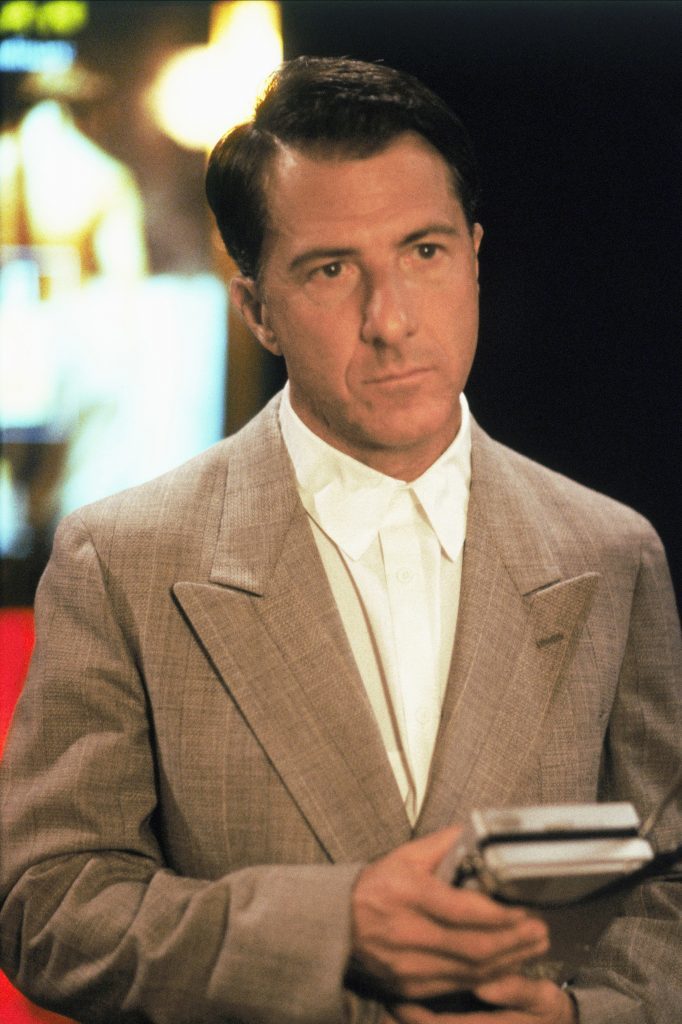
JULES ROBERTSON was recently cast as a young man with Asperger’s on BBC’s Holby City.
And he has a unique insight into what makes Jason Haynes such a special character, as he himself is a young man with Asperger’s.
Now Jules has joined forces with leading figures from some of the UK’s largest public and private-sector organisations to help launch Purple — a new organisation set on improving employment opportunities for people with disabilities by supporting both business and the individual.
Jules (25), the son of best-selling author Kathy Lette, says: “What makes me different from other actors is that I’m autistic.
“Life can be hard for autistic people, we want to work, we need to work, but it’s really difficult to get a job despite the fact that our brains are unique.
“Because I have had to fight this condition my whole life and I know just how hard it is, so I can bring that experience to the role.
“OK, Dustin Hoffman was great as the Rain Man but I still think I can bring a special edge, something extra to a role like that. I think Hamlet was on the autistic spectrum so maybe one day I will play the Asperger’s Hamlet.
“Autistic people have amazing talents. Some are very good with figures, some have very high IQs. They could add value to someone’s business, and a job would help them value themselves.
“I can’t tell you how liberating it is to be finally earning a wage. Until recently my current account reminded me of all the girls I try to chat up — not showing the slightest interest!
“So it’s absolutely great to finally be able to tell my money where to go instead of wondering where it went.
“I encourage businesses to think outside the box and hire people who think differently, and who think laterally — be brave, take a gamble by employing us. You won’t regret it.”
More than a third of businesses are apprehensive about hiring someone with a disability because of fears they won’t be able to do the job and concerns about making inappropriate comments or actions, according to a survey of a thousand businesses to coincide with the launch of Purple.
The organisation is unique in offering both consultancy and recruitment services to help businesses drive inclusive employment strategies, whilst providing disabled people with greater levels of employment support.
It aims to help more than 20,000 disabled people find permanent jobs over the next decade, whilst matching 25,000 personal assistants to disabled employers.
The research looked at the current barriers for business in employing disabled workers and found that one in five business owners and hiring managers admit they are worried about interviewing someone with a disability in case they do or say the wrong thing.
Fears include using the incorrect terminology and not knowing whether they should help with things such as opening doors or pulling out chairs.
One in five employers said falling foul of discrimination law was a real concern to them.
Disabled people already fall significantly behind the rest of the population when it comes to the majority of wellbeing standards.
Of the UK’s 11.5 million disabled people, just half are currently in work compared to 82 per cent of non-disabled people.
According to Purple, this study suggests misconceptions and prejudices are preventing disabled people from finding employment, with many being squeezed out of the job market at the first hurdle regardless of professional ability.
Chief Executive of Purple, Mike Adams, says: “We’ve always known that being disabled means you’re more likely to be unemployed and this has a real impact on both the career opportunities and quality of life.
“What this tells us is that in fact it isn’t disability that’s the barrier to finding employment, but the worries and misconceptions of business owners themselves.
“This isn’t just a barrier for disabled people but for many businesses missing out on valuable employee skills and talent.
“We want to work with business to address concerns whilst upskilling individuals to seize the opportunities available. We will give business and individual an equal voice and by not being afraid to tackle the issues on both sides we will change the conversation on disability employment.”
The benefits to businesses in creating a diverse workforce are huge with the disability market, or “Purple Pound” in the UK worth £212 billion a year.
Seamus Nevin, Head of Employment and Skills Policy at the Institute of Directors, says: “The dignity of a job and the assurance of a pay cheque should be available to all who aspire to it.
“The IoD and our members welcome the support Purple will offer to employers taking steps to bring more disabled people into the workforce and help them share in the opportunities that a job provides.”
As part of its offering Purple will work with businesses and organisations to helping them become accredited as part of the Government’s Disability Confident scheme. For more information on Purple and the research findings go to www.wearepurple.org.uk
READ MORE
Mum believes kindness can tackle social stigma associated with autism
Comforter joy as three-year-old boy with autism is reunited with blanket

Enjoy the convenience of having The Sunday Post delivered as a digital ePaper straight to your smartphone, tablet or computer.
Subscribe for only £5.49 a month and enjoy all the benefits of the printed paper as a digital replica.
Subscribe